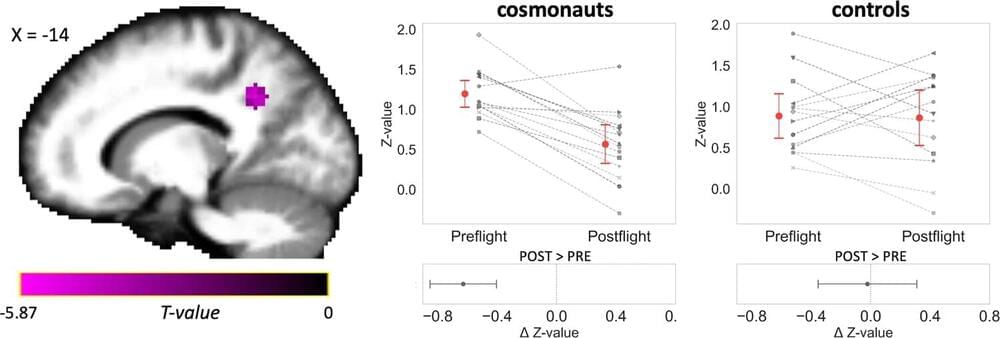Scientists of the University of Antwerp and University of Liège (Belgium) have found how the human brain changes and adapts to weightlessness after being in space for six months. Some of the changes turned out to be lasting—even after eight months back on Earth. Raphaël Liégeois, soon to be the third Belgian in space, acknowledges the importance of the research “to prepare the new generation of astronauts for longer missions.”
A child who learns not to drop a glass on the floor, or a tennis player predicting the course of an incoming ball to hit it accurately are examples of how the brain incorporates the physical laws of gravity to optimally function on Earth. Astronauts who go to space reside in a weightless environment, where the brain’s rules about gravity are no longer applicable.
A new study on brain function in cosmonauts has revealed how the brain’s organization is changed after a six-month mission to the International Space Station (ISS), demonstrating the adaptation that is required to live in weightlessness. The findings are published in the journal Communications Biology.
